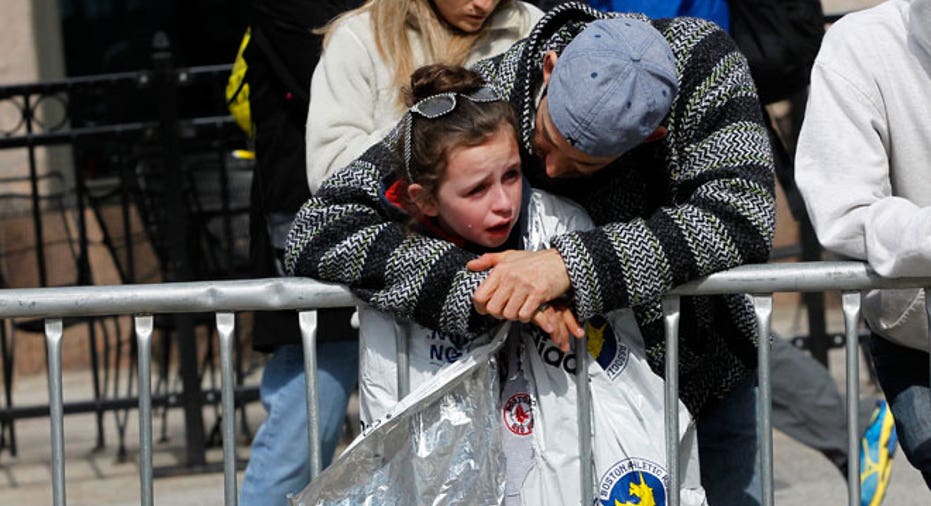How to Talk About Boston’s Bombings With Your Kids

The terrorist attack at the Boston Marathon on Monday has everyone asking questions—including children.
Broaching a difficult topic like the bombings with children all depends on their age and interest in the event, says psychotherapist Elaine Heffner, author of Good Enough Mothering. The wall-to-wall news coverage of the tragedy that has killed three people and left at least 170 people injured makes it hard to shield kids from learning about and seeing images of the attack, so Heffner recommends parents allow children to take the lead and inquire about what happened before assessing what to reveal.
“One father called me and his 10-year-old daughter was more interested in the facts of the matter and wasn’t connecting to the horror of it all,” Heffner says. “The point is that kids connect to how this is happening in ways that fit with how they are developing.”
Parents should ask kids if they are discussing the bombing at school or with their friends, she recommends, and depending on what they have seen and heard, parents should clarify and explain what happened. Their level of development will determine how this story in particular will impact them on a day-to-day basis.
“Talk in a matter-of-fact way without going into too much horror about what happened,” she says. “ As parents, it’s about helping your kids build emotional muscles and dealing with what they face in life.”
Parents should also drive home the point that the reason the bombing is being broadcast everywhere is because it is so unusual, advises Dr. Robert Leahy, director of the American Institute for Cognitive Therapy. He says that de-briefing or broaching the topic with kids unprovoked may actually make things worse.
“It’s more important to watch when you cross the street than it is to worry about terrorism,” Leahy says. “If your child expresses concern, of course acknowledge that this is a terrible thing that happened and that it’s natural to be scared. But the reality is, you are more likely to die from skin cancer than from terrorism.”
Parents should monitor what kids are watching on TV and how much news coverage they are being exposed to, he adds.
“You can watch Law & Order SVU and think the world is filled with child rapists and murderers, but that is very unusual. I think one of the mistakes that parents make is failing to realize that people are resilient. Sixty percent of the general public is exposed to trauma in their life, but only about 4% or 5% develop post-traumatic stress disorder.”
Parents should also work to validate any feelings of fear or insecurity, but don’t dwell on it, he says. Normalizing the day-to-day routine is more important that continuing to talk it through.
Make them feel secure in the home- that nuclear family structure helps them cope in situations like this one, Heffner says. “Their parents, home and family make them feel protected and reassured.”
And if they stop asking—stop talking, the experts agree.
“I don’t think you should overkill it on these things,” Heffner says. “Right now, the bombings are very present and on everyone’s mind, so of course you can address it now. But you don’t want to belabor it.”
Leahy says if a child starts acting differently or exhibits changes in sleeping, eating and behavioral patterns that may be a reason to probe further. But for the most part, talk about it and move on.
“Normalize your activities, because the more that you do that is normal, the more normal your kid will feel,” he says.



















